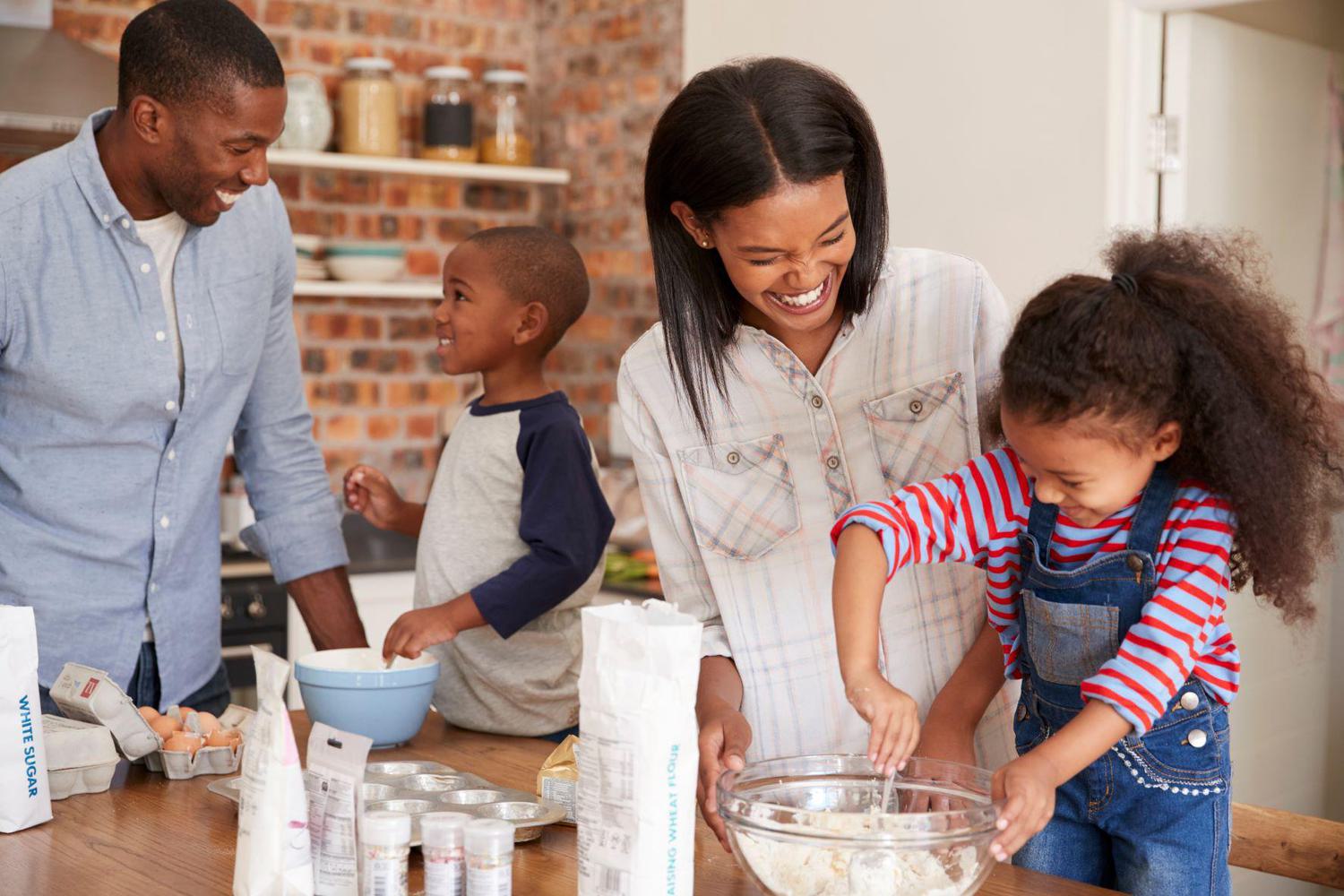Super nannies do so much to help parents and can be a wonderful and invaluable addition to your family.
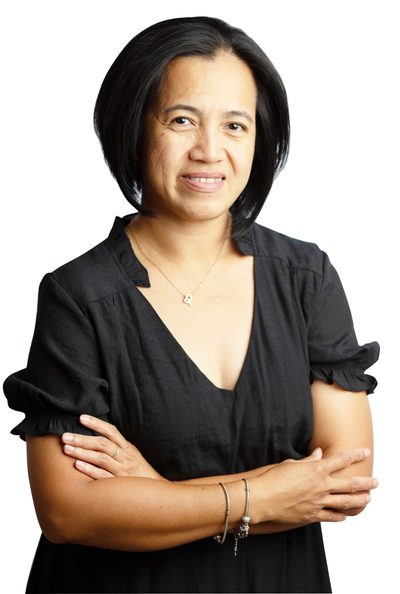
Jo-Ann Gruba
Jo-Ann Gruba, from the Philippines, is a nanny to Esme aged 5 years and Maya aged 1.
What is your favourite place to take the children to play?
Camana Bay. Esme loves running around there and meeting or making friends. While Maya loves the fresh air and watching the fountain and kids playing around.
Do the children have a favourite game they like to play with you?
Esme loves to play with different things but our favourite time spent together is singing and dancing to songs from 'Frozen' or 'Moana', as well as the song 'Shake it Off'!
If a child becomes upset or angry, how do you calm them down?
Kneel down, talk to her eye to eye and ask her what happened. After listening I then ask her how I can help. If there is a meltdown then I administer lots of hugs. If she makes a bad choice, I’ll take her to timeout and talk to her after she stops crying.
Who gave you the best advice or tips for childcare?
My mother. Sadly she has now passed away but she taught me to be strong and keep smiling despite any hardships.
What do you find the most rewarding part of looking after children?
It’s their smiles, their laughter and the hugs and kisses. I also love learning new things from them.
Do you have kids in your home country and how do you manage maintaining long distance relationships?
I have four lovely kids. Genesis 21, Sean 16, Liliana 14 and Luisa who is 5 years old. My family in the Philippines look after them for me. I call them every day before I go to work and again in the evening. Most of the time, I play games with my youngest, not forgetting to remind them all how much I love and miss them. I always include them in my prayers.
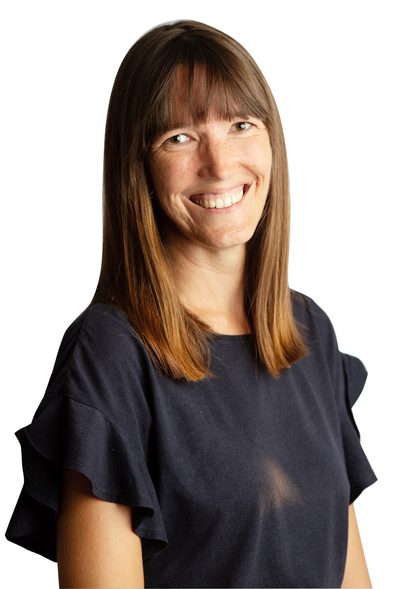
Rebekah Clark
Rebekah Clark, from the UK, is a full-time nanny to two girls aged 11 & 9 years and a boy aged 8 years.
Do the children have a favourite game they like to play with you?
There are so many games! Clue, Chess and the Game of Life are the games of choice at the moment. But if we have a spare few minutes we always find time to play a quick card game or two.
What is the most challenging situation you have faced so far whilst looking after the children?
During the Covid-19 lockdown last year I moved in with the family and had to juggle three children’s home-schooling needs. Making sure they were ready for their video calls, helping them with their schoolwork and making sure it was completed and submitted each day.
If one of the children becomes upset or angry, how do you calm them down?
I look after older children so usually I try and talk to them about what has happened to cause the upset or anger as it’s not always apparent, then try and come up with a plan of action between us going forward on how we are going to solve the problem that has caused the upset or anger.
What has looking after children taught you?
Patience!
What do you think are the best things about raising kids in Cayman?
The children here have lots of opportunities for extracurricular, especially activities connected to the ocean, such as snorkelling and scuba diving. It’s great that they get to play at the beach regularly too.
What was your childcare experience prior to working with your current family/children?
I worked as a nanny for 10 years in Munich and London with children aged 3-14 years old, as well as being a teacher in a bilingual school.
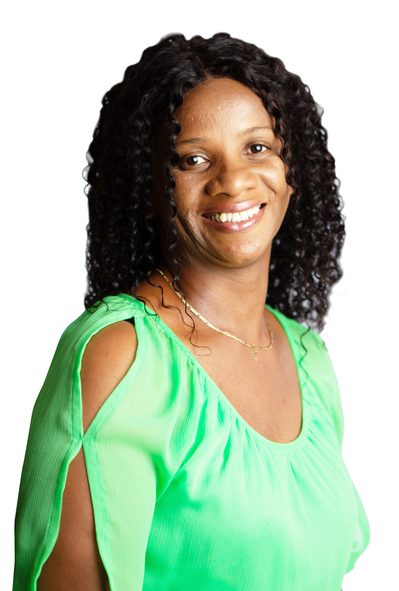
Suzette Drummond
Suzette Drummond, from Jamaica, is a nanny to Meymey who is 9 years old.
What is your favourite place to take Meymey to play?
When she was younger we spent a lot of time in Camana Bay, running around and hiding behind the trees. Now she’s older with lots of activities on we love to hang out in her playroom. We do puzzles together and play with her ‘babies’ but I often get told off for not doing it right!
What is the most challenging situation you have faced so far while looking after the child?
When the 2020 earthquake struck I collected Meymey from school and it took us two hours to get home. To pass the time we listened to stories, I sang her songs and we played games in the car. It was hard but we kept each other company and stayed calm until we were safely back.
If the child becomes upset or angry, how do you calm them down?
Sometimes, especially when she was younger, I would sing to her and give her cuddles. Now I talk to her, cuddle her and reassure her. Sometimes if it’s appropriate I make her laugh, we spend a lot of time playing and laughing. She’s not often upset or angry.
What has looking after children taught you?
Looking after other people’s children has taught me that it’s important to work for a family whose values match mine so that I can help support their family fully. It’s important that I follow the family rules, but also that I communicate regularly with the family if something isn’t working. Building trust between me and my employer family is key as is offering love and patience to the child.
What do you find the most rewarding part of looking after children?
Watching them grow into wonderful people. I feel proud thinking that I played a part in shaping the people that they will become and I love hearing about the things that they achieve. I keep in touch with all of the families that I have worked for and love receiving photos and updates.
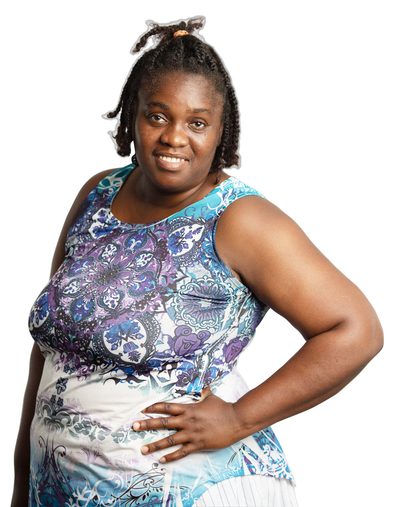
Tanesha Munroe
Tanesha Munroe, from Jamaica, is a carer to 24-year-old Branden who has Duchenne Muscular Dystrophy. She lives with him and his family full time.
What’s the most popular meal you cook for Branden?
Curried chicken, however, he is a foodie, so is always finding recipes for me to try out like stir fries, chicken parmigiana and chicken pot pie.
Does Branden have a favourite game he likes to play with you?
We watch TV together and enjoy programmes like Ridiculousness and funny home videos. We laugh a lot and discuss US politics as well.
What do you find the most rewarding part of looking after Branden?
Right now it’s that I feel like part of the family. I live with them full time and they treat me like one of their family. We cook together and spend time together – they take me to family functions and outings and I enjoy being a part of their life. My relationship with Branden has developed into a friendship too. We spend a lot of time together and talk about different things – he teaches me a lot.
What’s the best thing about looking after someone with special needs?
It gives me a much better appreciation for life and health. We have very specific routines and days that certain things need to be done, so it helps me to keep organised and on my feet.
What do you think could be done in Cayman to improve the lives of children and adults with Duchenne Muscular Dystrophy?
I have witnessed places that are not wheelchair accessible which makes it harder for him to get to appointments or enjoy a place with his family. I’ve heard his parents talk about challenges as well, with insurance, healthcare, schooling, employment – I think more can and should be done to focus on children and adults with Duchenne Muscular Dystrophy to see what they are missing and what they need to make their lives easier.





